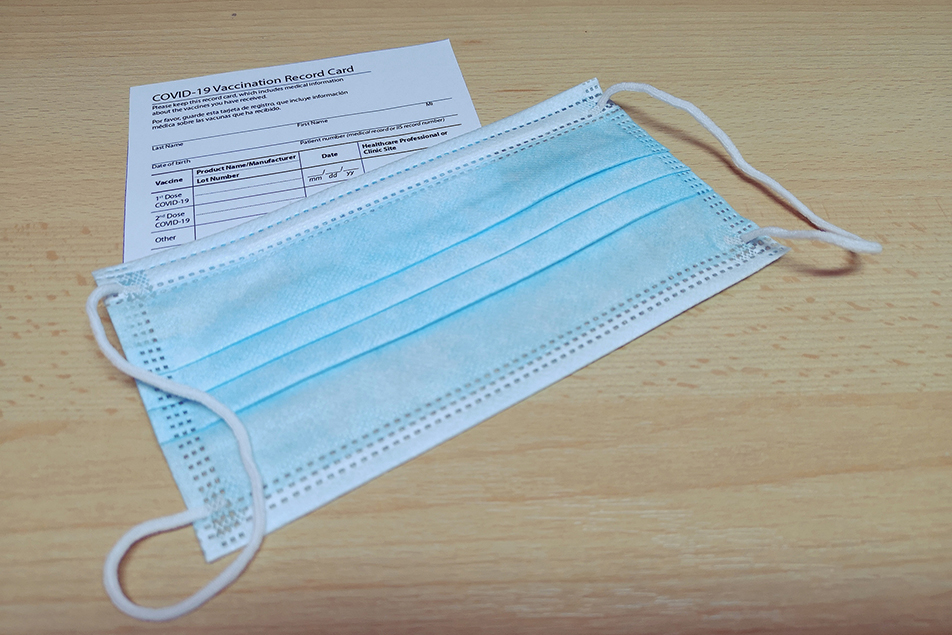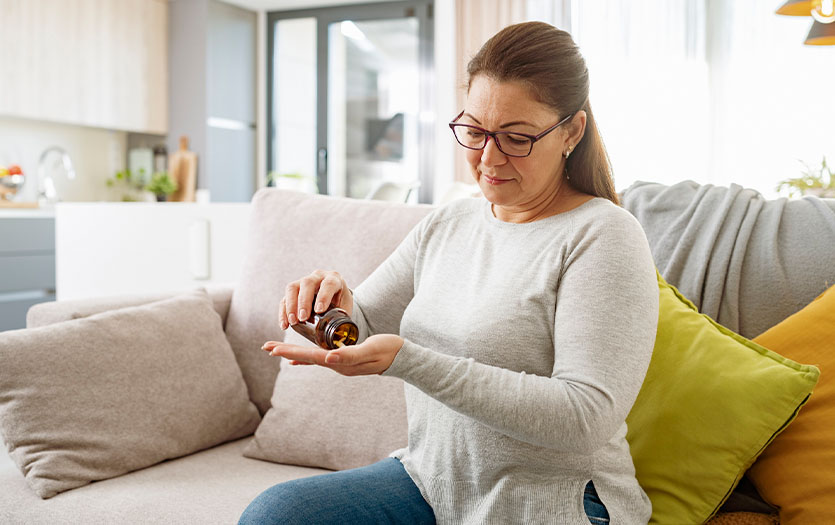
While a significant portion of the population has received the COVID vaccine, many still have not, either by choice or because they are not eligible at this time. The virus continues to spread at a high rate through our community. Testing can be a tremendous tool in identifying those who have the virus and therefore need to take measures to prevent transmitting the illness. We tapped Joshua Kline, MD, chief medical officer, PPG – Family Medicine, to answer our questions about testing recommendations, even if you’re fully vaccinated.
Can I still get COVID if I’m vaccinated?
Yes, someone who is vaccinated can still get COVID. No vaccine is 100% effective all the time. The intent of vaccines is not to completely prevent disease, but to prevent severe disease, hospitalization and death. Viruses continue to mutate and/or change as they infect more people. The changes in the virus that occur from the mutations make the virus less likely to be killed by the immune system through the antibodies generated by the vaccine. This means that over time, we may need vaccine boosters.
If I can still get the virus, what’s the point of getting the vaccine?
Getting vaccinated still makes sense, as healthy people who contract breakthrough cases will most likely develop mild symptoms in line with the common cold. The vaccines available in the United States have shown the ability to prevent severe disease, hospitalization or death, even with new variants like Delta. What we are seeing right now is that the current surge is largely a surge of the unvaccinated. Those getting critically ill or hospitalized are not vaccinated and those who have been vaccinated are largely avoiding hospitalization and death.
If I’m vaccinated and exposed to someone with a confirmed COVID diagnosis, should I get tested?
Fully vaccinated people who have come into close contact with someone with COVID-19 (within 6 feet of someone with COVID for more than 15 minutes in a 24-hour period) should be tested 3-5 days following the date of their exposure and wear a mask in public indoor settings for 14 days or until they receive a negative test result. They should isolate if they test positive. This is because occasionally vaccinated persons can carry the virus or develop mild disease and spread COVID to others.
If I’m vaccinated but experiencing COVID-like symptoms, should I get tested?
The Centers for Disease Control and Prevention (CDC) recommend that anyone with any signs or symptom of COVID get tested, regardless of vaccination status or prior infection. This is because individuals who have received the COVID vaccine can still carry the COVID virus or have a mild case. If you get tested because you have symptoms or were potentially exposed to the virus, you should stay away from others pending test results and follow the advice of your health care provider or a public health professional.
If I’m vaccinated but exposed to someone with a confirmed COVID diagnosis, should I self-quarantine?
Fully vaccinated people who have come into close contact with someone with COVID (within 6 feet of someone with COVID for more than 15 minutes in a 24-hour period) should be tested 3-5 days following the date of their exposure and wear a mask in public indoor settings for 14 days or until they receive a negative test result. This is to ensure that they see are not carrying the virus without symptoms, which would mean that they could spread COVID to those around them. They should isolate if they test positive.
If I’m vaccinated but planning to travel or attend a large gathering, should I get tested?
If you are fully vaccinated, you do not need to get tested before or after travel or self-quarantine after the trip if you are traveling within the U.S.
For international travel, you need to pay close attention to the situation at your destination before traveling outside of the country, as certain destinations require testing prior to travel. I would suggest working with a travel agency or consulting the CDC website for more information before you depart or plan to return.
If you are attending a gathering, are not fully vaccinated and aged 2 or older, you should wear a mask in indoor public places. In general, you do not need to wear a mask in outdoor settings, but in an area with a high number of COVID cases, like Northern Indiana, consider wearing a mask in crowded outdoor settings and for activities with close contact with others who are not fully vaccinated.
People who have a condition or are taking medications that weaken their immune system may not be fully protected even if they are fully vaccinated and may wish to avoid large gatherings. If you are fully vaccinated, to maximize protection from the Delta variant and prevent possibly spreading it to others, wear a mask indoors in public if you are in an area with a high number of COVID cases like our area.
Final thoughts
While COVID vaccines are not perfect, getting to the point where most of the population has gotten vaccinated is our best way to move back toward normal. I expect that once this occurs, COVID will remain with us but will be more like a cold for most people who don’t have chronic medical issues. Because of the significant risks of COVID infection, I would suggest that people get vaccinated to prevent them from getting severe disease, hospitalization and death rather than trying to get COVID to get immunity. The vaccines are safe and effective, and I recommend them to my patients.
You can learn more about community testing sites and FAQs here.



